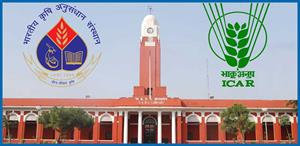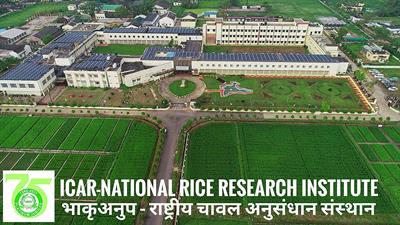
PUMPA - SMART LEARNING
எங்கள் ஆசிரியர்களுடன் 1-ஆன்-1 ஆலோசனை நேரத்தைப் பெறுங்கள். டாப்பர் ஆவதற்கு நாங்கள் பயிற்சி அளிப்போம்
Book Free DemoResearch institutions for agriculture:
Agricultural research institutions formulate agricultural practices based on recent results obtained from research and farmers' needs.
They use the research information for people's welfare and use suitable media and methods. Indian Agricultural Research Institute and the Indian Council of Agricultural Research are few institutions involved in agricultural research.
Indian Agricultural Research Institute (IARI)
The IARI is a national institute for agricultural research, education and extension. IARI is commonly called the Pusa Institute. It is administrated and financially supported by the ICAR (Indian Council of Agricultural Research).
IARI was responsible for research that led to the green revolution in India during the 1970s. The policies, plans, and programs of IARI help meet the nation needs. IARI developed high-yielding varieties of major crops.

Indian Council of Agricultural Research (ICAR)
The ICAR is an autonomous body responsible for carrying out and coordinating agricultural education and research in India. The union minister of agriculture serves as its president. It functions under the Department of Agricultural Research and Education, Ministry of Agriculture.
ICAR is the largest network of educational institutes and agricultural research in the world.

ICAR - NRRI
Krishi Vigyan Kendra (KVK)
Krishi Vigyan Kendra is a farm science centre. The centre serves as a link between ICAR (Indian Council of Agricultural Research) and the farmers. KVK\ aims to apply the findings of agricultural research into practical localised settings.
The first KVK was established in the year 1974 in Pondicherry. Since then, KVKs have been established in all the states. KVKs are expected to undertake their own projects and to serve as a resource centre for extending government initiatives to local areas.
KVKs can be formed under various host institutions, including agricultural universities, state departments, ICAR institutes, other educational institutions or non-government organisations.
Roles and Responsibilities of KVK
- Each KVK implements a small farm to test new technologies like seed varieties or innovative farming methods developed by ICAR institutes. This implementation allows new technologies to be tested at the local level before being transferred to farmers.
- KVKs organise programs to test and show the efficacy of new technologies on the farmer's fields.
- KVKs organise workshops that discuss modern farming techniques with various groups of farmers.
- KVKs provide advisory to the farmers about weather and market pricing through mobile phones and radio.
- KVKs focuses on the growth of crops and various cultivation methods.
- KVKs also facilitate the link between the institution and the local farmer community.
Reference:
https://commons.wikimedia.org/wiki/File:ICAR-NRRI.jpg